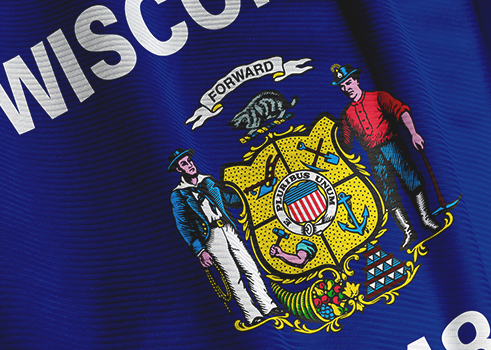Incumbent Doug La Follette (D), Amy Loudenbeck (R), Sharyl McFarland (G), and Neil Harmon (L) are running for Wisconsin secretary of state on Nov. 8, 2022.
Duties of the Wisconsin secretary of state include recording the official acts of the governor and the executive department, compiling and keeping laws and resolutions adopted by the legislature, having custody of the state's records, and authenticating certain documents. According to Wisconsin Public Radio's Shawn Johnson, "[M]ost of the office’s responsibilities have been outsourced to other state agencies that answer to the governor."
The responsibilities of the office have been a central issue in this race, particularly concerning election administration. Wisconsin is one of five states where the secretary of state has no election-related duties. The legislature transferred election administration responsibilities from the secretary of state to a nonpartisan elections board in 1974. Since 2016, the bipartisan Wisconsin Elections Commission has overseen the state's election administration. La Follette and Loudenbeck disagree about whether the secretary of state should have a role in the state's election system.
La Follette was first elected secretary of state in 1974 and served one term before an unsuccessful run for lieutenant governor in 1978. He was elected secretary of state a second time in 1982 and has since served 10 consecutive terms. La Follette says that maintaining the state's independent election system is "[t]he critical issue in this campaign for Secretary of State." He said, "The state of Wisconsin has been a pivotal battleground in several of the past presidential elections. ... For this reason, it's more important than ever that we elect a Secretary of State that will defend our democracy over party. As America's longest-serving incumbent Secretary of State, I have the track record and deep well of experience to do it."
La Follette also says he wants the secretary of state's office to again have responsibility for business-related functions. He said, "I have long maintained that we need to make Wisconsin more business friendly. An important step in that direction is to have Wisconsin's business functions handled as they are in other states. To do this, we should consolidate all such 'business functions' in the Office of the Secretary of State."
Loudenbeck was first elected to represent District 31 in the Wisconsin State Assembly in 2010. Her campaign website states, "The Secretary of State’s office has fallen into disrepair and disfavor thanks to the neglect of Democrat Doug La Follette who has been in that office for forty-four years." Loudenbeck says, "[M]y goal would be to modernize the office, to be responsive to requests for authentication of documents, to be a billion dollar board member for the Board of Commissioners of Public Lands and actively engage in the role that currently exists for the secretary of state that I see as being neglected right now."
Loudenbeck has said she would advocate for abolishing the Wisconsin Elections Commission and moving ministerial election duties such as training, guidance, voter roll maintenance, and voter outreach to the secretary of state’s office.
To change the duties of the secretary of state, the legislature would have to pass a bill and the governor would have to sign it into law. Wisconsin currently has a divided government, with Republican majorities in the Senate and Assembly, and Democrat Tony Evers holding the governorship. According to the Associated Press' Todd Richmond, "Republican Assembly Speaker Robin Vos ... has said he supports the [Wisconsin Elections Commission] and opposes giving the secretary of state election powers."
In 2018, Democrats gained a state government triplex in Wisconsin when Democratic candidates defeated Republican incumbents in the elections for governor and attorney general, and La Follette was re-elected. All three offices are up for election again in 2022.
There are currently 23 Republican triplexes, 18 Democratic triplexes, and 9 divided governments where neither party holds triplex control.
This is one of 27 elections for secretary of state taking place in 2022. All but three states have a secretary of state.



